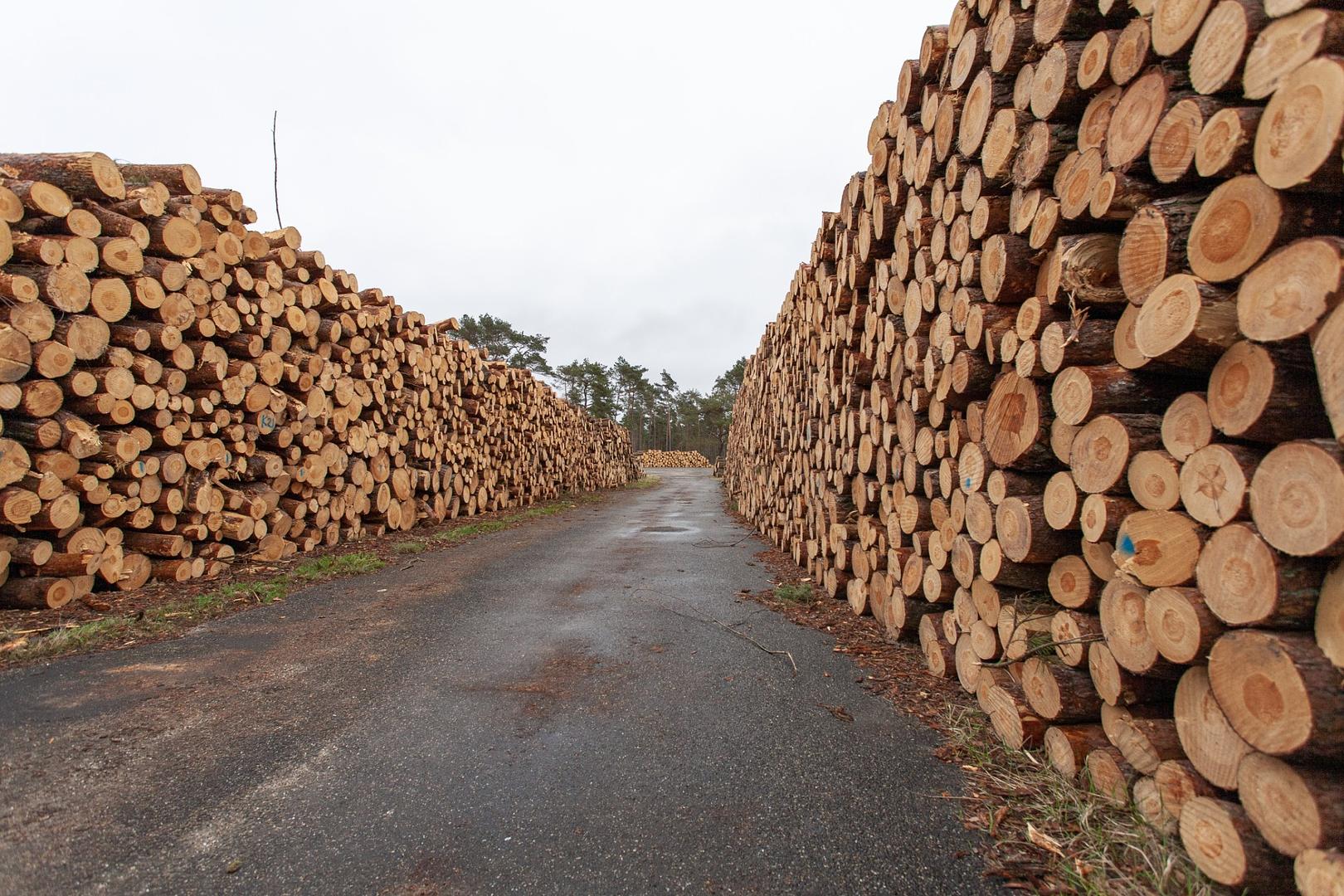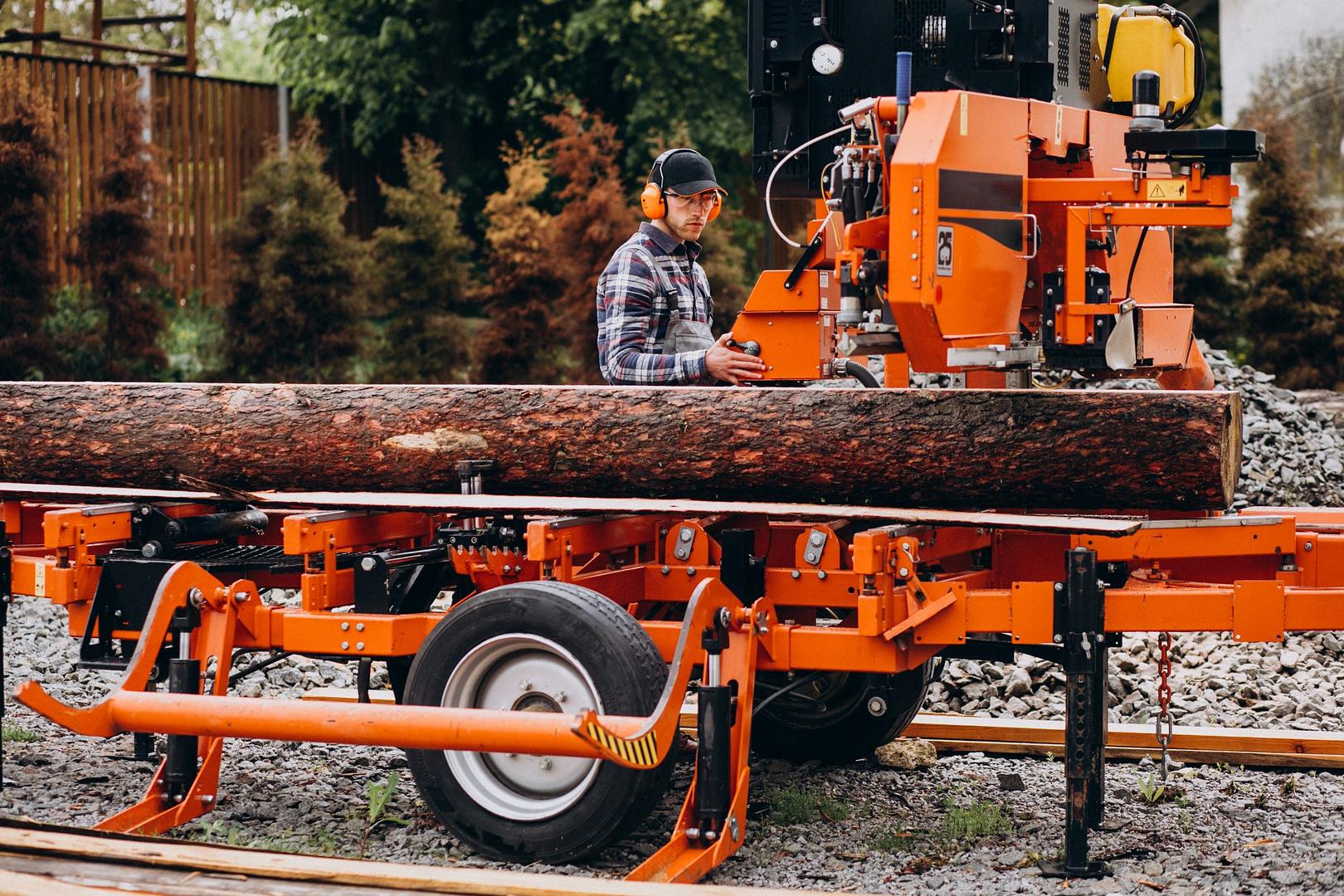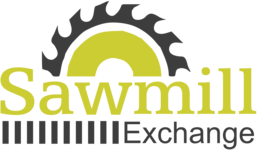Menu
By Wayne Nisley
In the quiet countryside of Peach Bottom, Pennsylvania, what began with a borrowed mill and a few downed trees has grown into a steadily expanding sawmill operation known as Esh Lumber. Founded by dairy farmer brothers Jonas and Amos Esh, the company is marked by a consistent focus on producing quality lumber, working hard, and respecting the craft of lumber making.
The story starts in February 2017, on a dairy farm where the brothers were milking cows and working the land. Jonas had just bought a small crawler to clean up field edges and intended to cut firewood from the fallen trees. That plan changed quickly when the landowner noticed some walnut trees hanging over the field. "Cut them down, and we'll make lumber," the neighbor suggested. That suggestion lit a spark.
A friend lent them a portable mill—an LT40 Wood-Mizer—and what was meant to be a one-time project turned into something much more. "We got sawdust in our blood, and we couldn't get it out," Jonas recalls with a smile. Not long after, the brothers tracked down their own mill—an older electric LT40 tucked under a tarp and infested with mice. After a bit of tinkering, a new 29-horsepower Vanguard engine, and some fresh wiring, they got the mill running. It wasn’t perfect, but it ran well—and more importantly, they were having a ball.


One day, a neighboring sawmill operator who specialized in mat production stopped by and mentioned that if they had a slightly bigger mill with stronger hydraulics, they could potentially cut mats for him. That comment got Jonas thinking—and set the next upgrade in motion.
In 2018, they sold the dairy cows and focused fully on the sawmill, slowly upgrading their operation. A diesel-powered LT50 came next, followed by a trade-up to an LT70 in 2019. The increased capacity prompted further investment: a log deck, a green chain, a chipper, and eventually a new Accu-Cut edger during the height of the COVID-19 pandemic.
By 2021, they had outgrown even the LT70. Jonas and Amos ordered a Baker 3674 diesel mill, which arrived in May 2022 after a year-long wait. But the biggest transition came in 2024 when the farm they operated on was transferred to new owners who put the farm in a clean and green program, which did not allow commercial businesses on farm property, forcing them to find a new location. They relocated to a commercial property in Oxford, PA, which had formerly housed a shaving mill. With wide driveways, a log yard, and a building already in place, the transition was surprisingly smooth.
Their current setup centers around a Baker 3674 diesel mill, which they have extensively customized. They redesigned the band tensioner system, increasing pressure while distributing it more uniformly—a change that significantly reduced wear on critical components like the lateral slide bearing, which used to wear out in under a year. By building a yoke around the band wheels and incorporating a hydraulic cylinder with an air hydraulic pump, they were able to double the band tension without overloading the bearings.
The team also repositioned the Sawyer cab to the opposite end of the mill, allowing a clear view down onto the log and enabling the operator to saw toward himself. While they initially faced skepticism, even from the mill’s manufacturer, the upgrades have proven highly effective—so much so that the company asked for photos of the modified setup. These hands-on improvements have helped push production higher while preserving machine life and operator efficiency.
Esh Lumber now employs around eight or nine people, including other family members and a few trusted neighbors. One key step forward is currently beginning to grade their own lumber. Jonas sent three team members to a hands-on training in Belleville, PA, where they learned how to interpret the NHLA rule book. Since then, grading has become their latest new challenge and is becoming quite a passion.
The three regularly pull aside tricky boards from the green chain and gather around them during break times, thumbing through their rulebooks and trading opinions. These spirited discussions not only sharpen their knowledge but also build camaraderie and reinforce a steady focus on doing the job right. To help the crew understand the value of what they're producing, Jonas keeps purchase orders posted with current lumber prices where everyone can see them. "If they’re interested in helping their boss make money," he says, "they’ll think about it while they work."
Today, Esh Lumber is preparing to install a Cleereman mill with a McDonough band head rig. They also plan to host a consignment auction this September, selling off extra equipment—including a 2017 Morbark 640 debarker, which, while still an excellent machine, doesn’t fit their current goals for preparing veneer logs for export markets. But make no mistake—this is not a liquidation. Jonas emphasizes that the auction is simply part of their continual upgrading, allowing them to clear out extra equipment and make room for their next phase of growth. They will also be accepting consignments from others in the community who have equipment to sell.
From making crane mats to four-quarter grade lumber and pallet stock, Esh Lumber continues to balance quality with efficiency. Their team regularly hits 10-12,000 thousand board feet daily with a max record of 17,000 in a single day thanks to careful modifications and a willing work force. And as Jonas says, "Even if it’s low-grade, it needs to be well-manufactured. First impressions matter."
"Nice packs, well-manufactured, advertise themselves and sell themselves," Jonas explains. That philosophy has helped them maintain solid relationships with buyers even through downturns. "I'm a firm believer in loyalty. During COVID, when buyers came offering more money, we stayed loyal to the ones who were with us when prices were low."
At the same time, Jonas is quick to note the importance of staying financially aware. "During and right after COVID, you couldn’t do much wrong," he says, "but now, we keep a close eye on the profit and loss sheet. If something’s losing money, we have to be willing to rethink it. And if something’s working, we give it a little more attention."
Looking back, Jonas gives a lot of credit to helpful neighbors and fellow sawmillers—but some of their success came from a willingness to learn, adapt, and go the extra mile. "If you’re not mechanically inclined when you start sawmilling, you will be in a couple years," he says with a laugh.
The story of Esh Lumber is far from over. With new equipment on the way and a vision for log exportation in the future, Jonas and Amos continue to build not just a business—but a trusted legacy, one board at a time.

